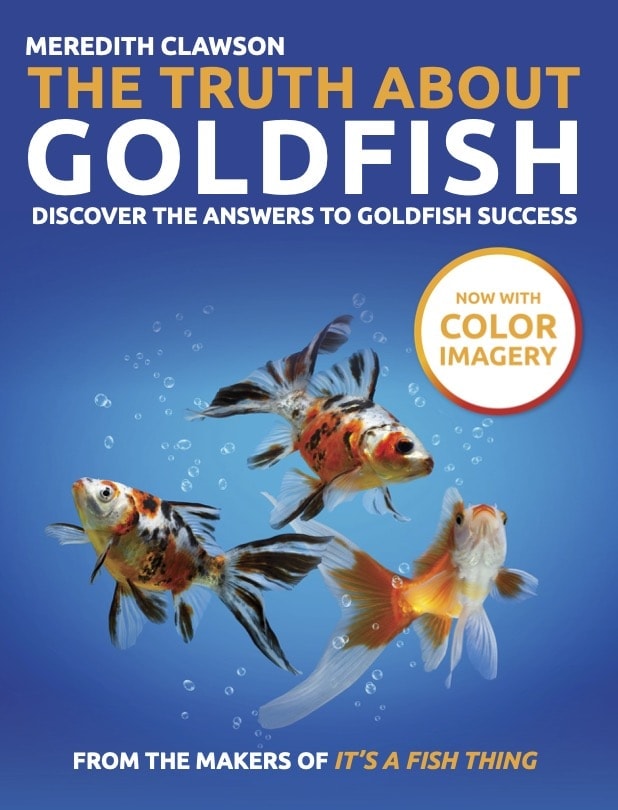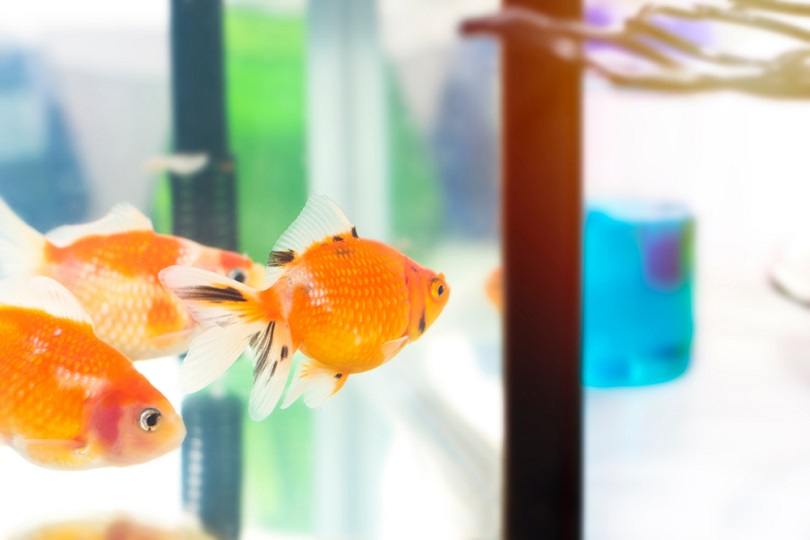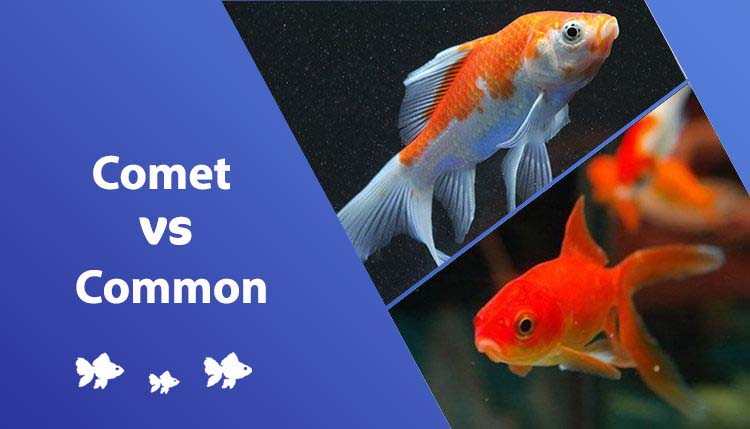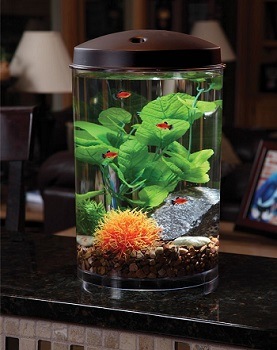Do Goldfish Need a Filter? The Answer Might Surprise You

Updated on
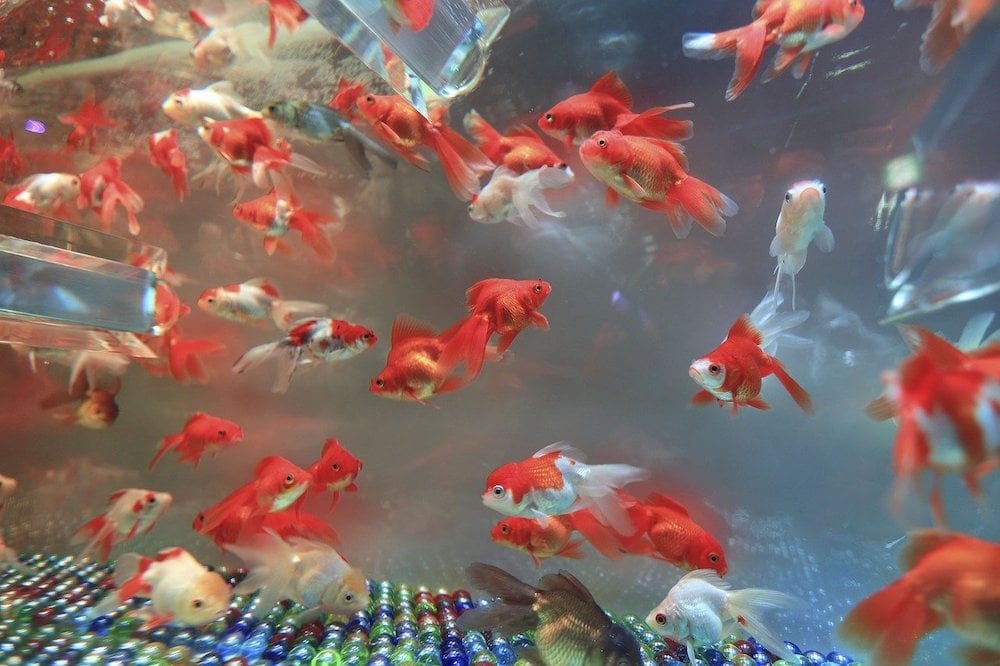
I’ve heard this question many times: “Do goldfish need a filter?” No, goldfish don’t need a filter. They just need clean water. But you will probably want one and here’s why.
Your Life Without a Filter for Your Goldfish
Goldfish filters were invented for one reason and one reason only: To keep the water quality in good shape for longer periods of time.
They also help to oxygenate the water (though that’s a side benefit and not their main purpose, as an airstone can accomplish the same job). Some types are better at this than others. Goldfish produce waste. Some would argue a lot of waste. In the wild, the water volume is so huge that this doesn’t cause a problem.
This waste continues to build up in the closed tank system (aka your aquarium or bowl), and will eventually poison the fish if it isn’t removed regularly. Filters don’t change the water for you.
They don’t remove the poop, they just trap it temporarily until you can deal with it (assuming you use mechanical filtration). But they DO help purify the water without having to replace the water. This means instead of having to change the waterSubstrates For Planted Tanksat least 50% – EVERY SINGLE DAY or at least several times a week, you can put the dreaded task off to maybe once every week or two (or once a month, if you have a super filter).
Question: Do you want to become a slave to your goldfish hobby? If so, do you want to see your water bill go through the roof? If not… you need to get yourself a filter. Another bonus? A powerful filter can allow you to keep your aquarium more heavily stocked.
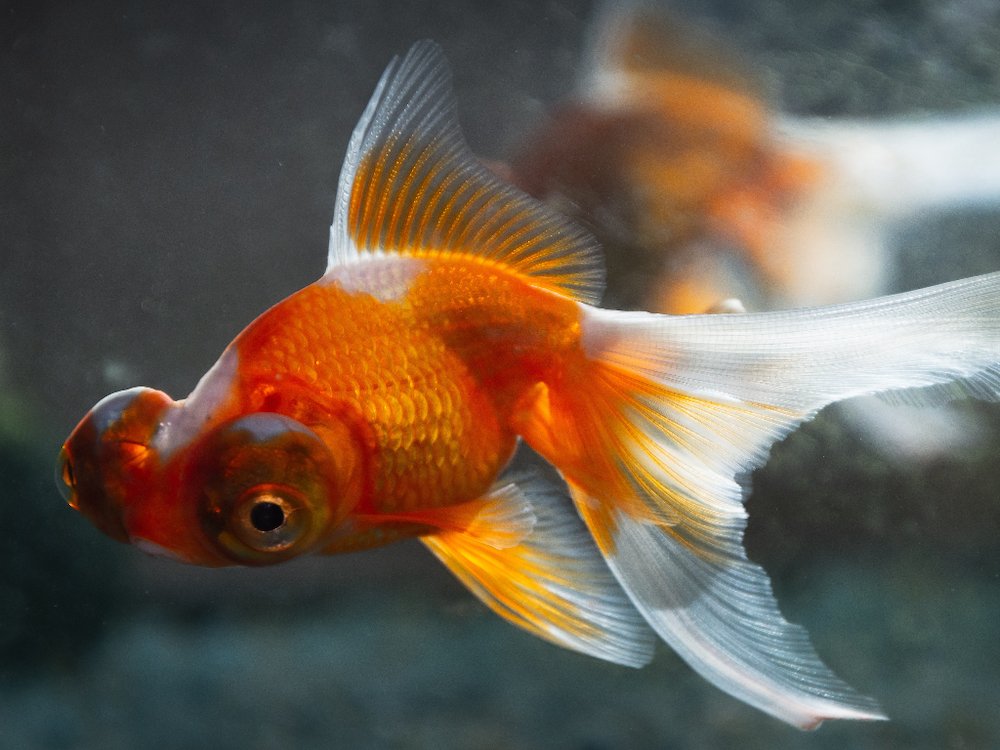
What Filters Are Recommended for Goldfish?
There are many different brands and styles of filters on the market today that use different kinds of technology. Some work better than others for certain purposes, such as trapping solids or providing gas exchange. A good filter for goldfish won’t have too much current.
Goldfish come from slow-moving waters, and the fancy varieties with big tails really don’t appreciate having to fight the current around the clock. For them, a good filter will do a great job at reducing ammonia and nitrite without relying on tons of water movement.
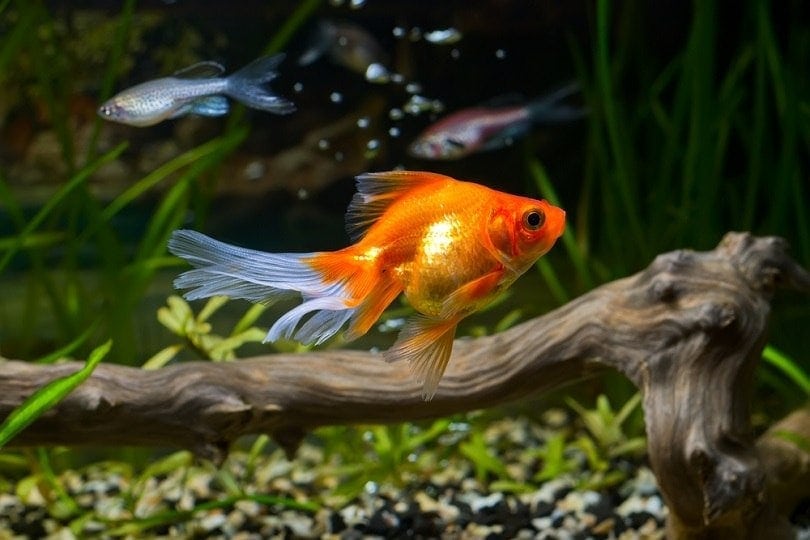
Maintaining Your Filter
Filters need to be maintained – but before you start complaining, remember how much work they are saving you. How often you have to clean it depends on many things, such as whether or not it is using mechanical filtration, the ratio of water to fish, your feeding schedule and if you are using a prefilter.
Filters that aren’t cleaned frequently enough can lead to sick fish as gunk turns into a breeding ground for bad bacteria.
How a Goldfish Filter Works
Filters keep the water clean for much longer than without one. This is done in three ways (a filter may use one or all of these methods).
1. Mechanical filtration
Mechanical filtration is the use of fine material – usually a sponge, batting or woven cloth made out of polyester – to trap solid particles.
The purpose? It can help keep the water clear, as well as prevent solid waste from getting in areas of the filter that would choke out your beneficial bacteria.
Here’s the drawback: Mechanical filtration requires more frequent cleaning. This is because if you let it continue to build up, it gets really gross and causes your nitrates to get too high – it can even make your fish sick.
Most mechanical filtration media needs to be cleaned off every week or two to get rid of the built-up gunk for a healthier aquarium.
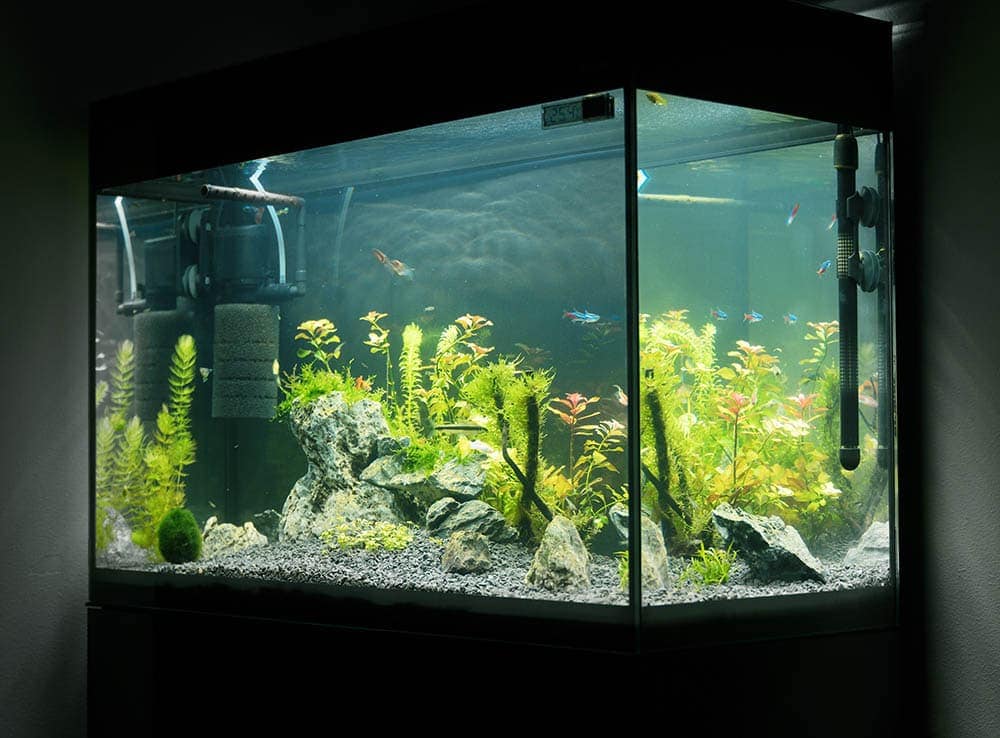
If you're a new or even experienced goldfish owner who is having issues understanding the intricacies of water filtration, or just wants a bit more detailed information on it, we recommend that you check out our best-selling book, The Truth About Goldfish.
It covers everything about creating the most ideal tank setup and more!
2. Biological filtration
To understand biological filtration, you really need to understand the nitrogen cycle. One of the MOST important purposes of the filter is to provide a place for good bacteria to grow – these good bacteria reduce the toxins your goldfish produce. This colony of good bacteria is what keeps your fish safe in between water changes.
Without them, most fish keepers would have dangerous problems like ammonia and nitrite spikes (both highly poisonous to fish). Aerobic filtration (the kind that turns ammonia into nitrite and nitrite into nitrate) works best in a strong current, the kind produced by many commercial filters available on the market.
In fact: The stronger the current, the more efficiently it works.
Anaerobic filtration (the kind that removes nitrates) works best in slower, gentle currents.
Which kind is better? It depends on your needs. The smaller your water volume and the more heavily stocked it is, the more you will probably need aerobic filtration to keep your ammonia and nitrites down. Nitrate is far less toxic to fish and can be removed with water changes.
But if you keep your tank lightly stocked and don’t feed much, nitrate reduction might be your best friend to keep your workload down.
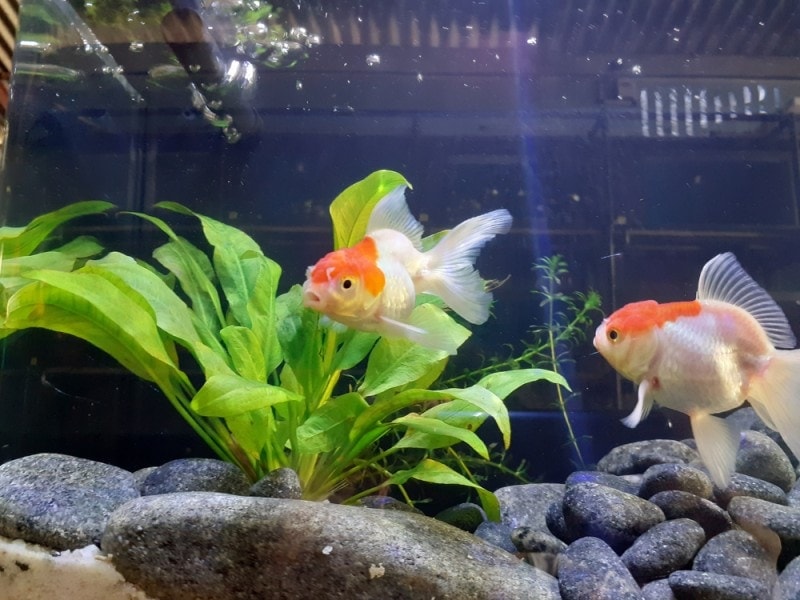
3. Chemical filtration
Chemical filtration can use natural elements to purify the water through an exchange process that detoxifies the toxic chemicals as they pass through it. The most common method is charcoal (aka carbon).
This stuff is really useful for removing tannins in the water that cause a yellow or brownish discoloration. It’s also fantastic for keeping ammonia and nitrite levels low in a new tank (though this does slow down the cycling process).
I really recommend this stuff when people are adding new fish to a small tank or bowl where ammonia or nitrite levels can be super concentrated. An added benefit of carbon is it may even deactivate fish hormones in the water.
It does NOT remove nitrates, sadly. It also may not last more than a week or two, depending on how many toxins it needs to process. Nevertheless, chemical filtration certainly has its place in aquaculture.
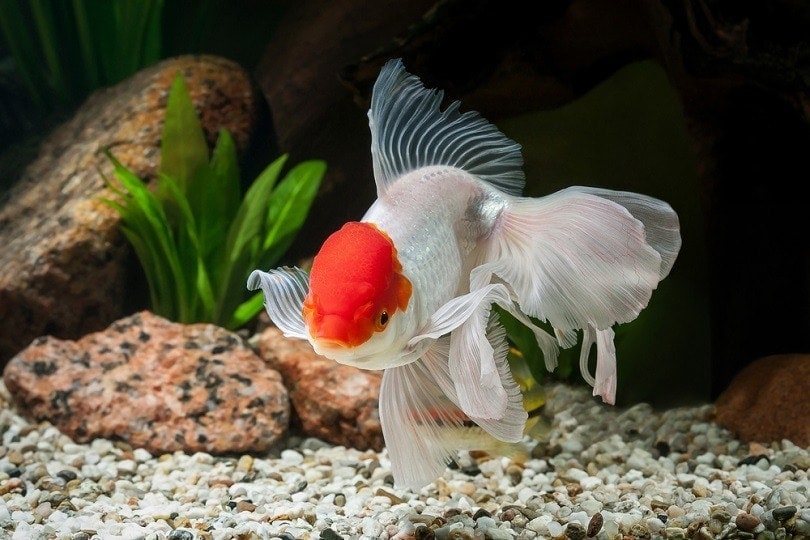
Conclusion
We recommend it! With lots of live plants and/or regular water changes SOMETIMES a filter can be bypassed. But in most cases – it’s a really good idea.
What about you? Want to share your thoughts in the comment section below?
Featured Image Credit: Pixabay


